Small animal veterinary case study – Brig the bearded collie
History
Brig was presented with a 3 week history of weight loss and faecal tenesmus. The owner reported that the faeces were ribbon like, but did not contain blood. Appetite was good and there was no history of vomiting. Thirst was unchanged. Rectal examination revealed a mass at the pelvic brim. Haematology and biochemistry were unremarkable.
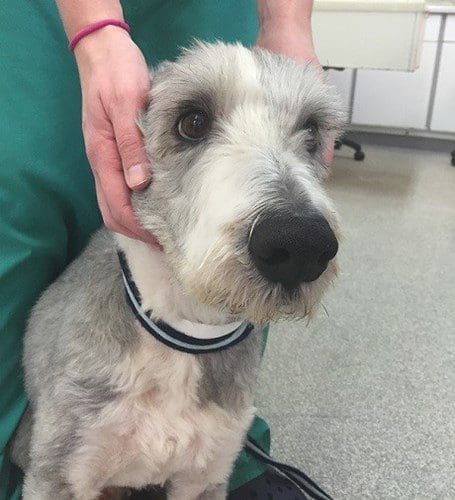
Physical examination
On clinical examination, Brig was quiet but alert and in good body condition at 22.4kg. Peripheral lymph nodes were not enlarged. Abdominal palpation was unremarkable. Thoracic auscultation revealed a grade IV/VI systolic murmur on the left side with no signs to suggest cardiac failure. A rectal examination confirmed the presence of a right sided mass ventrally which was partially obstructing the rectal lumen.
Diagnostic imaging
An abdominal ultrasound was performed. There was no free fluid and no enlarged lymph nodes. The urinary bladder was unremarkable. The palpable mass was imaged just caudal to the bladder on the right side and was consistent with a prostatic mass. The changes were not consistent with a cyst. The mass measured 4.96 x 3.39cm and appeared compartmentalised with both hypoechoic and hyperechoic areas within it.
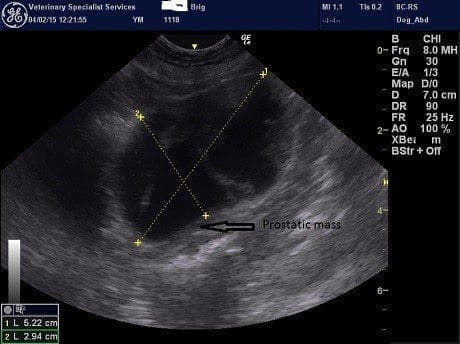
Thoracic radiographs (non-inflated) showed no evidence of pulmonary metastases. Abdominal radiographs showed no evidence of additional pathology. Vertebral spondylosis was present in multiple vertebrae.
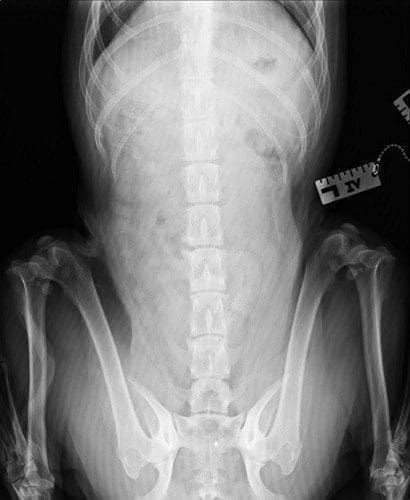
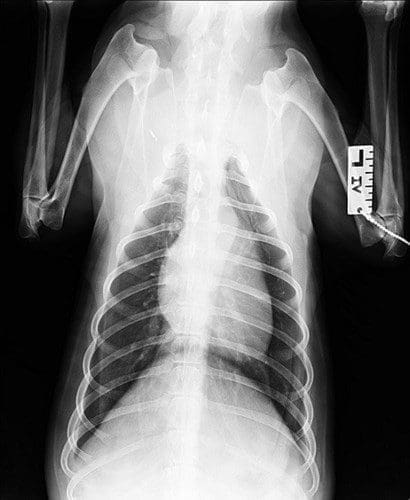
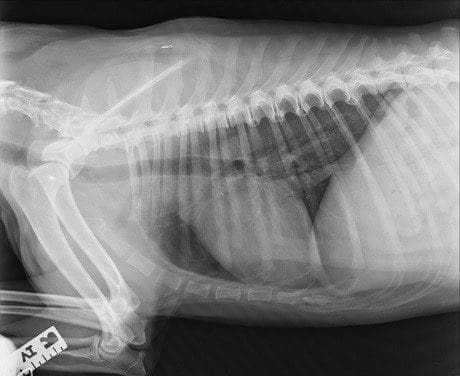
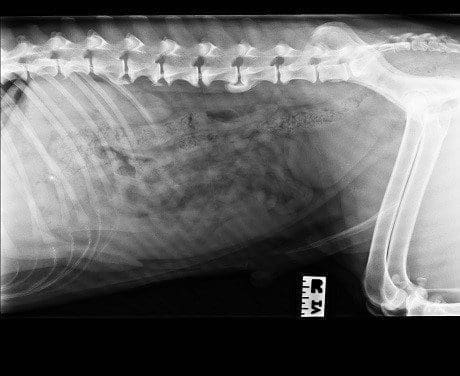
Aspirates of the mass were performed but these were non-diagnostic due to poor exfoliation. TruCut biopsies of the mass were then performed under sedation using ultrasound guidance. Histology revealed clusters of epithelial cells, containing medium to large nuclei and coarse chromatin with 1-2 prominent nucleoli. Mitotic figures were present. These changes were consistent with prostatic carcinoma.
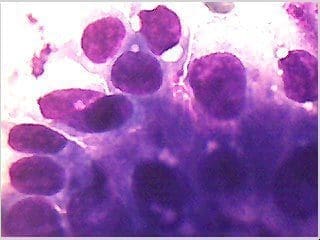
Brig is doing well with NSAIDs which can possess some anti-tumour activity in this type of cancer and he is also receiving lactulose to help him defaecate more easily. So far the clinical response has been reasonably good.